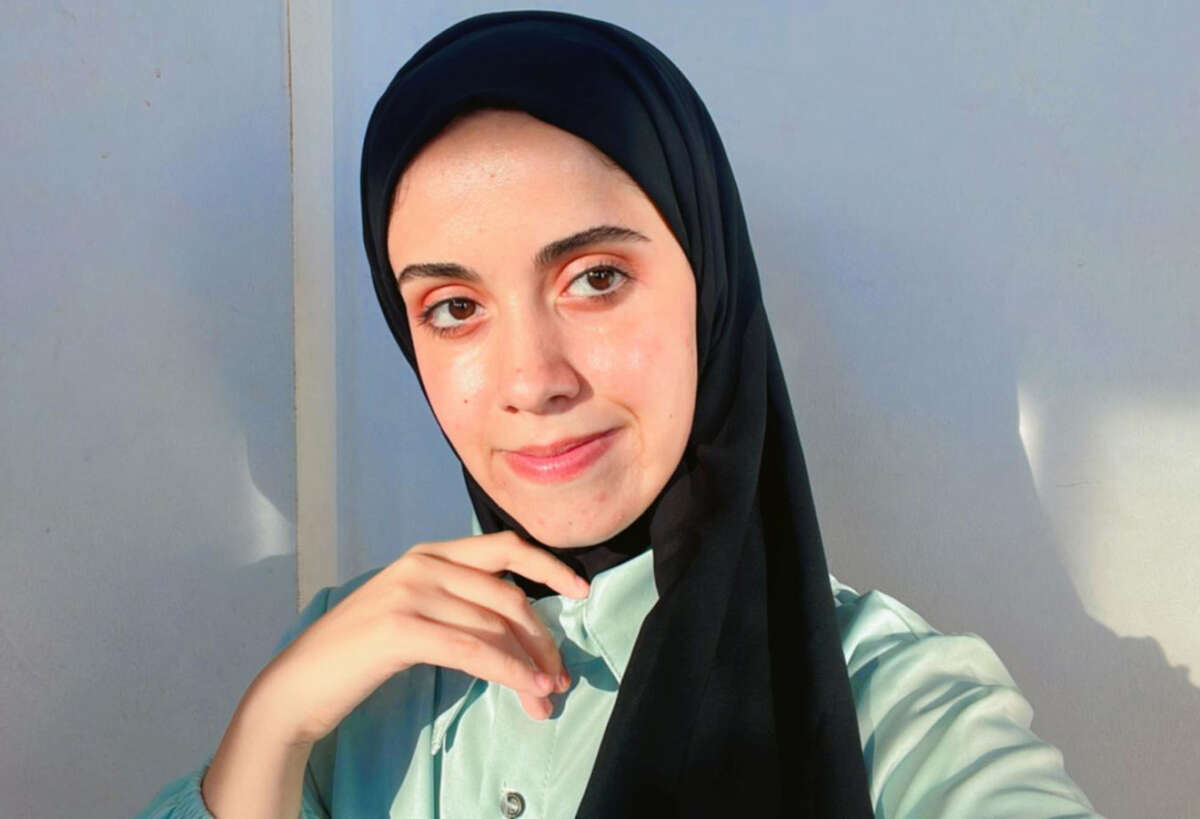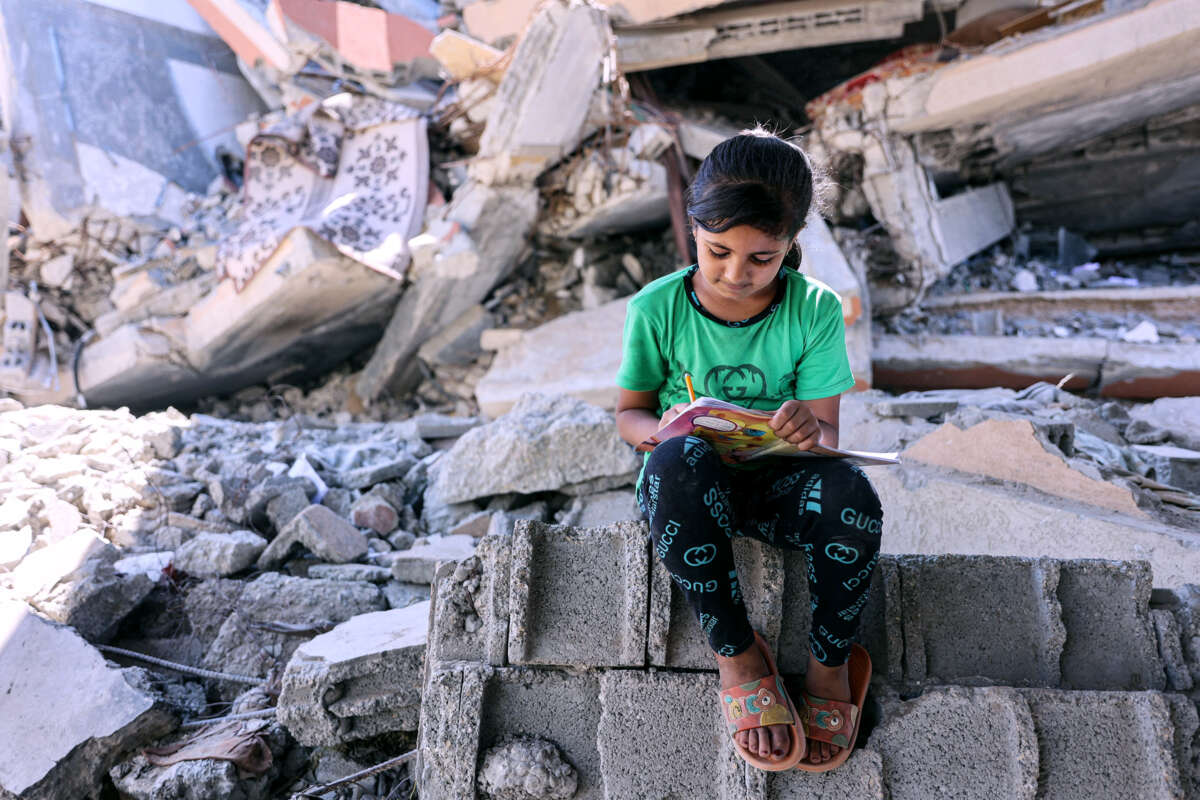Support justice-driven, accurate and transparent news — make a quick donation to Truthout today!
Beginning on November 29, the International Day of Solidarity with the Palestinian People, a weeklong event will foreground the plight and power of Palestinian cultural production amid the ongoing genocide in which Israel has killed over 44,970 people. The event, called Read Palestine Week (#ReadPalestineWeek), features online and in-person events across North America, Europe and the Middle East, beginning with a 24-hour global solidarity online reading group that begins and ends in Palestine.
“During this week, we encourage people around the world to read fiction and poetry by Palestinian and Palestinian diaspora authors, … nonfiction about Palestinian history, politics, arts, culture, and life, [and] books about organizing, resistance, and solidarity for a Free Palestine,” wrote Publishers for Palestine, the event organizers, in an announcement of the first annual Read Palestine Week last year. Publishers for Palestine is a global collective of more than 500 publishers, which first organized behind a solidarity statement in November 2023. This year’s event has also received support from dozens of bookshops and other partners, including Radical Books Collective and ArabLit.
Read Palestine Week frames reading and learning about Palestine as acts of solidarity and resistance and encourages culture workers and readers everywhere to disrupt Israel’s culture- or art-washing — terms used to describe how the state launders its occupation and genocide of Palestinians through cultural works.
To get readers started, members of the Publishers for Palestine collective are offering over 20 Palestine-related e-books in several languages for free download during the week-long event. The collective has also released a free digital chapbook titled And Still We Write: Recent Work By Palestinian Poets and Actions You Can Take to Stop Genocide Now. The publication includes works from nine Palestinian poets alongside artwork and resources to help readers “throw [sand] on the gears of genocide,” to paraphrase poet Rasha Abdulhadi, who is quoted in the chapbook’s introduction. Asmaa Dwaima, one of the writers featured in the chapbook, told Truthout the book “reflects the creative abilities of Gaza’s youth, our talent in writing stories and poetry, and our desire for the world to know us through our works.”

An integral part of the ongoing genocide is Israel’s attacks on Palestine’s history and culture. In Gaza, that has manifested in the assassinations of Palestinian journalists, scholars and poets, and the decimation of education infrastructure and cultural and historical sites. Poets and other culture workers in Gaza have had their lives “turned upside down,” Dwaima told Truthout. “Many of us lack even the simplest tools to create, like a quiet space, pen and paper, or access to electricity or the internet.”
“I write because my pen is my weapon against the occupation.”
Before Israel invaded Gaza last year, Dwaima was training as a dentist and used much of her spare time for writing. She and her friends used to gather at a local restaurant in Gaza City to share their works-in-progress. Now, much of Dwaima’s neighborhood lies in ruins, and she and her family have been displaced to Deir al-Balah in central Gaza, where they live in a shelter with several other families. “Before October 2023, I used to write about love and happiness; all my writings were fictional stories, joyful stories with happy endings. But after October 2023, my writing shifted to war and loss,” she told Truthout. “Now I write because my pen is my weapon against the occupation.”
With no reliable internet connection or electricity in the besieged Gaza Strip, poets like Dwaima and Nasser Rabah, who is also featured in the new chapbook, told Truthout that they must walk long distances to reach solar charging points for their devices and transmit their works outside of Gaza. Rabah called it a “Sisyphean” task.
For Rabah, who has been sheltering in a shell of his home in the Maghazi Refugee Camp in Deir al-Balah since Israeli forces razed the neighborhood in December 2023 and January 2024, writing used to be a private project. Now, he told Truthout, “Writing has become a kind of loud protest against what is happening and a way to survive and continue life amidst all this death and destruction. Wartime writing is the voice of the martyrs, the wounded and the displaced. Therefore, it has become a national responsibility and a duty, no longer an individual, personal act.” He said he now writes “with the sound of bombing planes, roaring tanks and Apache gunfire mixed with the screams of ambulances and the crying of the bereaved and the grieving.”
Poets must walk long distances to reach solar charging points for their devices and transmit their works outside of Gaza.
While Israel commits direct and shocking violence against producers and sites of Palestinian culture in Gaza, its attacks abroad are more pernicious. To help Western readers understand and recognize Israeli art-washing, And Still We Write includes an explainer.
“Israel has invested billions of dollars to construct a sophisticated and strategic cultural apparatus of journalism, education, literature, film, music, tourism, and social media to justify settler-colonialism, occupation, and its genocidal destruction of Palestine and the Levant,” reads the text. “Israel’s artists, academics, writers, publishers, arts organizations, and universities, whether through silence or active participation, are complicit in Israel’s normalizing and ‘art-washing’ of occupation, settler-colonialism, apartheid, and genocide.”
Often, in academic and cultural institutions, as well as mainstream media in the West, texts on Palestine or those by Palestinian writers are ignored or misrepresented. Israeli institutions and benefactors exert pressure to maintain this status quo, and Western cultural workers who aim to disrupt it and speak up about Palestine face repression.
As part of Read Palestine Week, author and librarian Lena Mubsutina is facilitating “Finding Falasteen: A Guide to Researching Palestine” on December 3, 2024, an online event that will pull back the curtain on these processes of obfuscation, misrepresentation and repression. The event will also offer paths toward a freer flow of knowledge about Palestine in the West. “Libraries, archives, and other information organizations have the potential to remedy the ignorance and disinformation circulating about Palestine,” Mubsutina told Truthout.
Like the Publishers for Palestine collective, Mubsutina said she conceptualizes learning about Palestine as a vital act of solidarity and resistance. “Reading and learning about Palestine is an act of resistance because these acts acknowledge that our history, culture, innovation, and creative works are worthy of recognition and study.”
Beyond engaging with writing from Palestinian authors and learning about Palestine, calls to action in the And Still We Write chapbook include joining the Palestinian Campaign for the Academic and Cultural Boycott of Israel. That campaign was launched in 2004 and is part of the international Boycott, Divestment, Sanctions (BDS) movement, which is led by Palestinian civil society groups and aims to exert nonviolent pressure on Israel to end its occupation.
“Writing has become a kind of loud protest against what is happening and a way to survive and continue life amidst all this death and destruction.”
Shaimaa Abulebda, a writer and lecturer in English literature, told Truthout that participating in this campaign matters to writers on the ground in Gaza. “I want Western culture workers to cut ties with Israeli academics and institutions and boycott or work towards the cancellation of events, activities, agreements, or projects involving Israel and its institutions,” she said.
Abulebda longs for previous years when she taught a comparative literature course at the Islamic University of Gaza before the school was forced to close and Israel bombed the campus in February 2024. She remembers assigning Ghassan Kanafani’s The Land of Sad Oranges, Mourid Barghouti’s I Saw Ramallah and Edward Said’s Reflections on Exile.
The warmth and safety of her former classroom feel like a distant memory now. Still, Abulebda said she draws inspiration from those classic Palestinian texts as she continues her writing practice from her partly destroyed home in Khan Younis. She told Truthout she hopes the works of writers from Gaza being shared today will similarly inspire readers around the globe and spur them to action. “I continue to write because I have been inspired by Palestinian writers who shared stories, in fiction and memoirs, since the Nakba,” she said. “Through them, I got to know Palestine. And, hopefully, through us, you will get to know and experience Gaza.”
A terrifying moment. We appeal for your support.
In the last weeks, we have witnessed an authoritarian assault on communities in Minnesota and across the nation.
The need for truthful, grassroots reporting is urgent at this cataclysmic historical moment. Yet, Trump-aligned billionaires and other allies have taken over many legacy media outlets — the culmination of a decades-long campaign to place control of the narrative into the hands of the political right.
We refuse to let Trump’s blatant propaganda machine go unchecked. Untethered to corporate ownership or advertisers, Truthout remains fearless in our reporting and our determination to use journalism as a tool for justice.
But we need your help just to fund our basic expenses. Over 80 percent of Truthout’s funding comes from small individual donations from our community of readers, and over a third of our total budget is supported by recurring monthly donors.
Truthout’s fundraiser ended last night, and we fell just short of our goal. But your support still matters immensely. Whether you can make a small monthly donation or a larger one-time gift, Truthout only works with your help.
